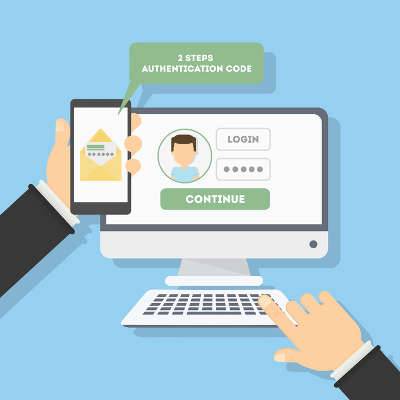Chances are, you’ve heard of spam, but many don’t know how to identify it in the first place, let alone work around it. Frankly, spam can cause some serious damage to your business if not properly dealt with. In today’s blog, you’ll learn what makes spam, “spam,” and how you can keep it from infecting your inbox.
Macro Systems Blog
Over the past several months, while watching the news or reading about business and technology, you’ve probably encountered a few words, such as ‘ransomware’ ‘exploit weakness’, and ‘security patch’. These terms are used often, and you may be confused as to what they really mean, and how they relate to you and the security of your business’ data.
With the mountainous success of Game of Thrones, the BBC-produced show has always been understandably concerned with their security. However, with the show officially overtaking the original source material, A Song of Ice and Fire, there is an increased presence of curious fans and members of the press with an eye out for a sneak peek at the action. This has led to more; somewhat more modern measures being adopted to keep the production’s secrets safe.
With the surge in the number of small and medium businesses that have fallen prey to malware and cyber criminals, there is a lot of focus of what an organization can do to prevent being a victim and how the company should handle themselves after an attack. There is another key factor to preventing cyber criminals from penetrating into your network: your employees.
A new malware swept across the globe Tuesday, incorporating facets of many ransomwares that have made headlines recently. While it originally appeared to be a variant of the Petya ransomware, it has been determined that it shares more in common with WannaCry. However, “NotPetya,” as it has been named, has a few additional features that experts say make it worse than either of its predecessors.
It doesn’t matter which industry your organization falls into. Your business will always be susceptible to threats in some way, shape, or form. Therefore, it’s your responsibility to ensure that your business understands how to protect itself from these threats, before it’s too late. We’ll help you learn more about the various issues that you need to watch out for, and what you can do to stop them.
The Internet of Things is all around us, in our homes, our offices, and even our cars. While this connectivity can provide a more unified and automated approach to daily tasks, it has the downside of enabling certain security threats to go unfettered. A prime example are the IoT-driven botnets that seem to be increasing in popularity.
Has your business dealt with a phishing attack? If not, consider yourself lucky. There has been a massive spike in phishing attacks as hackers are aggressively going after organizations and the personal identifiable information they hold. These attacks are just not focused on typical businesses either, they are going after organizations that provide public goods. One place that has become a major target for hackers (and phishing attacks) are schools.
In the course of doing business your organization needs to lean on its communications investments. Efficient discourse between vendors, clients, and employees allows for productive action to be made quickly. If you have recently decided to deploy a feature-rich hosted VoIP business phone platform because of its ubiquity, you have to be cognizant of how to best secure your solution. Here are three variables that help you get the most out of your hosted VoIP solution.
Regardless of what industry a company is classified under, they all are responsible for upholding particular standards to ensure compliance with industry regulations. However, according to the 2016 State of Compliance survey, a shockingly high number of organizations were shown to be a bit fuzzy on their requirements.
Is your organization using the latest technology solutions? If so, that’s great--you’ve taken the first step toward achieving maximum productivity and efficiency. However, you need to realize that no technology solution comes without its quirks that need to be addressed. Here are two ways that your new technology solutions could potentially be putting your business’s infrastructure at risk.
One of the biggest benefits to the modern business is the scope and breadth of the Internet that connects them with potential and current clients and allows them to communicate their goods and services. This scope and breadth are also one of its biggest pitfalls, as there is plenty of room for the multitude of threats and other potential issues to reside as they menace businesses everywhere.
Security has never been easy for any business that deals with sensitive information. Nowadays, even a small business that uses an Internet connection has to worry about hackers and malware of all types. This is especially problematic for small healthcare offices that need to keep sensitive information secure and safe from online threats.
Ransomware, the unpleasant form of malware dedicated to denying users access to their own device, has become more prominent with mobile technology. While ransomware is typically associated with desktop computers, it’s fully capable of infecting mobile devices. Therefore, it should be no surprise that cases Mobile-based ransomware have increased nearly four-fold in the past year.
In a world where businesses either pride themselves on their security solutions, or have woefully unsecured networks, you need to understand that one of the most common threats to sensitive corporate data comes from within your organization. User error is the leading cause of data loss and security-related problems, although, it’s important to remember that they often have good intentions that may result in an unfortunate outcome.
 Your organization is constantly at risk of being attacked by malicious entities. This is a fact that modern businesses have to live with. If this is the first time you’re seriously contemplating cyber security, you need to take all potential options into account; including the worst-case scenario, and how you would combat it.
Your organization is constantly at risk of being attacked by malicious entities. This is a fact that modern businesses have to live with. If this is the first time you’re seriously contemplating cyber security, you need to take all potential options into account; including the worst-case scenario, and how you would combat it.
 It’s the nature of technology to grow more complex over time, and as it does, the types of threats grow alongside it. Security is now more important than ever before, and if your business is not prepared to handle the threats that lurk in the shadows, your organization could be running with an unnecessary crutch.
It’s the nature of technology to grow more complex over time, and as it does, the types of threats grow alongside it. Security is now more important than ever before, and if your business is not prepared to handle the threats that lurk in the shadows, your organization could be running with an unnecessary crutch.
 Accessibility and mobility are important parts of a business’s data infrastructure. To this end, some businesses take advantage of a Virtual Private Network (VPN), which has the power to extend a personal network over a private network like the Internet. However, with new services like cloud computing gaining traction, is it time for businesses to switch up their VPN policies to stay relevant in their industry?
Accessibility and mobility are important parts of a business’s data infrastructure. To this end, some businesses take advantage of a Virtual Private Network (VPN), which has the power to extend a personal network over a private network like the Internet. However, with new services like cloud computing gaining traction, is it time for businesses to switch up their VPN policies to stay relevant in their industry?
 As seen by the recent Superfish app debacle, software that comes preinstalled on a new PC shouldn’t always be trusted. Most of the time, the innate software on a device can be trusted; but the Superfish application is an exception. This app, which came preinstalled on new consumer class Lenovo PCs, such as those that are available at local retailers such as MicroCenter and BestBuy, between the months of September and December of 2014, can potentially compromise the security of your machine.
As seen by the recent Superfish app debacle, software that comes preinstalled on a new PC shouldn’t always be trusted. Most of the time, the innate software on a device can be trusted; but the Superfish application is an exception. This app, which came preinstalled on new consumer class Lenovo PCs, such as those that are available at local retailers such as MicroCenter and BestBuy, between the months of September and December of 2014, can potentially compromise the security of your machine.



















